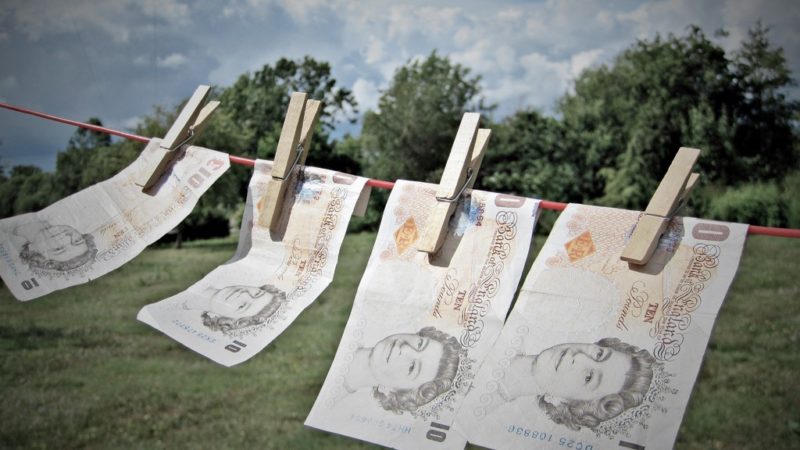'The UK government has been forced to act on the flow of dirty money into property. The Bill is a token gesture and is unlikely to make a significant difference to the flow of dirty money into the UK property market.'

Prem Sikka is an Emeritus Professor of Accounting at the University of Essex and the University of Sheffield, a Labour member of the House of Lords, and Contributing Editor at Left Foot Forward.
Impression management is a key part of the UK government’s ideological armour. It disarms critics through gestures which are rarely accompanied by effective commitments. A good example is the Economic Crime (Transparency and Enforcement) Bill, being rushed through parliament. The government claims that the Bill is needed to discourage the flow of dirty money, particularly Russian money, from entering the property market. Is that so?
The UK has long provided shelter to proceeds of theft, bribery, corruption, drug and human trafficking. Government agencies estimate that around £100 billion a year is laundered through the financial system. A 2017 report by Transparency International reported that 766 UK corporate vehicles were used in 52 large scale corruption and money laundering cases approaching £80 billion.
Anyone from anywhere in the world can use any name and address to form a company. Companies House, the body responsible for company formation, makes no authentication checks. Numerous whistle-blower leaks such as the Panama Papers, Paradise Papers, Pandora Papers, HSBC leaks, Luxembourg leaks and others have shown that a network of enablers including estate agents, accountancy and law firms have been central to illicit financial flows. Shell companies registered at home and abroad have been used to obfuscate the money trail
The property market has been a major destination for dirty money. Around 90,000 UK properties are owned by opaque companies, frequently formed in offshore tax havens. At least £1.5bn worth of UK property is thought to be owned by Russians accused of financial crimes or with links to the Kremlin. The parliamentary Intelligence and Security Committee said that the flow of Russian money into the UK was a danger to national security. Despite the vast amount of evidence, the government failed to introduce any transparency legislation even though it was first promised in 2016. The City of London opposed greater transparency.
After Russia’s invasion of Ukraine, the government has come under pressure from allies to curb the London laundromats. The Economic Crime (Transparency and Enforcement) Bill is its response. It has more holes than Swiss cheese and is unlikely to make a significant difference.
A key part of the Bill is to create a new register of overseas entities, which will require overseas companies owning or buying property in the UK to give details of their beneficial owners to Companies House. In order to register title to land, an overseas entity will have to be registered with Companies House. The resulting register will be made public.
A ‘beneficial owner’ is someone who holds 25% or more of the shares or voting rights in the overseas entity or exercises significant influence over it. It does not take a genius to concoct arrangements which fail to meet the ‘beneficial owner’ definition and thus avoid identification of the beneficiaries. For example, five people may own 20% each of the overseas entity and none would need to be identified as the beneficial owner. They can also hide behind nominee shareholders and directors, and agents.
Companies House has an appalling record in curbing formation of fraudulent companies or identifying fake names and address given by company directors. The government has no proposals for changing its operations, but has now promised another Bill later this year.
The beneficial ownership information is only required for properties purchased in England and Wales on or after 1 January 1999, and on or after 8 December 2014 in Scotland. There is a complete amnesty for any property purchased before these dates. So with the absence of disclosures, the historically accumulated dirty money will not to be flushed out.
Should a foreign company not comply with the new filing requirements or file false information, then its manging officers may face criminal or civil penalties. But it is hard to see how the UK will extradite and prosecute officers residing in other countries, for example Russia. So the Bill states that until the required information is filed, the property in question can’t be leased or sold. However, this too is problematical. The Bill requires that the relevant information must be filed within six months of the acquisition of property and thereafter updated annually. The problem is that six month is far too long. Within that period someone can use illicit financial flows to buy property, sell it and liquidate the company without ever filing any information to identify the beneficial owners.
We have learnt more about illicit financial flows from whistle-blowers, but the Bill offers no protection or support to them.
The acquisition of property through shell companies is carefully organised by enablers operating at home and abroad. At least, those operating from British soil can be disciplined by local law enforcement agencies. However, there is no mechanism for holding the UK agents of overseas entities accountable for actions which channel illicit flows into UK property.
The UK government has been forced to act on the flow of dirty money into property. The Bill is a token gesture and is unlikely to make a significant difference to the flow of dirty money into the UK property market.
To reach hundreds of thousands of new readers we need to grow our donor base substantially.
That's why in 2024, we are seeking to generate 150 additional regular donors to support Left Foot Forward's work.
We still need another 117 people to donate to hit the target. You can help. Donate today.



